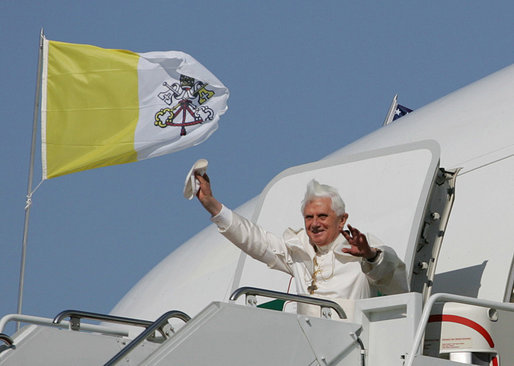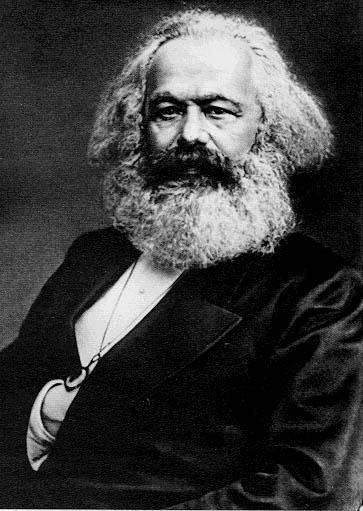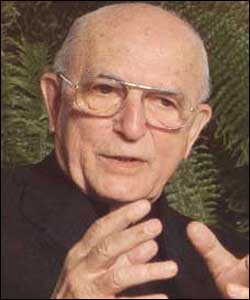Please Note: The following is translated from Portuguese. Please do not consider this translation the most accurate interpretation of the Cardinal’s words, instead please consider it the most available and consult the original text for a better understanding-ed.
Cardinal Eugênio de Araújo Sales wrote a text interpreting the words of Pope Benedict XVI to the Brazilian Bishops–Padre Joãozinho, scj
Errors of Certain Liberation Theologies.
The urgent appeal that Pope Benedict XVI rendered to the Bishops of Regions 3 and 4 of the CNBB [National Conference of Brazilian Bishops] in the “ad limina” visit of December 5, 2009, was not limited to the Bishops that were present, but as always, in these visits was directed to all the Episcopate and to all of the Church in Brazil.
The Holy Father remembered the difficult circumstances that 25 years before there existed a clear orientation of the Holy See in the Document “Libertatis Nuntius” which, already in the first line, affirmed the Gospel message of liberty and the force of liberation”. From this document, the Church received great light, but there was no lack of animosity from those that want to obscure and defame this doctrine.
With clear words and always much more invitation for a serene reflection than that of reprimand, the Pope remembered the gravity of the crisis, provoked, also and essentially in the Church in Brazil through a theology that had, in its beginnings, ideal motives, but that gave these principles illusionary elements. Such doctrinal lines of theology called Theology of Liberation.
The brief discourse of the Pope to the Bishops of the South Regions 3 and 4 is a message that involves the apostolic authority of the Supreme Pastor and the evangelical good of the Church among us. Therefore, he urges that all the pastors receive the word of the Pope and remind themselves of that same crisis, that turned almost impossible the dialog and the calm discussion, in environments and, at times, at the high ecclesial levels. Today, therefore, the Church in Brazil in some places, suffers sorrowful consequences of those roads.
 Upon relativizing, silencing or even hostilizing essential parts of the deposit of faith, Liberation Theology neglects the Supreme Rule of Faith of the Church that provides the unity that the Holy Spirit established between Tradition, Sacred Scripture and the living Magisterium.” said Benedict XVI, citing the words of Pope John Paul II (“Fides et Ratio”, 55) The three cannot subsist independently—therefore, today still the sequela of Liberation Theology shows itself essentially to the level of Ecclesiology to the level of the life and of union of the Church. The Church continues divided, in some parts through the rebellion, division, dissention, offense and anarchy” (message of Benedict XVI) said the Holy Father: creating therefore “in your diocesan communities great suffering and grave loss of living force. (Benedict XVI)
Upon relativizing, silencing or even hostilizing essential parts of the deposit of faith, Liberation Theology neglects the Supreme Rule of Faith of the Church that provides the unity that the Holy Spirit established between Tradition, Sacred Scripture and the living Magisterium.” said Benedict XVI, citing the words of Pope John Paul II (“Fides et Ratio”, 55) The three cannot subsist independently—therefore, today still the sequela of Liberation Theology shows itself essentially to the level of Ecclesiology to the level of the life and of union of the Church. The Church continues divided, in some parts through the rebellion, division, dissention, offense and anarchy” (message of Benedict XVI) said the Holy Father: creating therefore “in your diocesan communities great suffering and grave loss of living force. (Benedict XVI)
Already in the document “Libertatis Nuntius” of the year 1984, Pope John Paul II and the congregation of the Doctrine of the Faith presided over by Cardinal Joseph Ratzinger who extended his hand and offered a clear and blessing light of the divine faith and of the living communion that the Holy Spirit gives to the Church. (Benedict XVI)
With concise and strong words, the document “Libertatis Nuntius” on the Theology of Liberation speaks of justice “aspiration to liberation as one of the principle signs” of the modern time. Especially “in our people that experience the weight of misery”, with their disinherited masses offended in his profound dignity (cf. LN 1:1-2) The scandal of the shocking inequality between the rich and poor – whether between rich and poor countries, or between social classes in a single nation – is no longer tolerated.”. “On one hand, people have attained an unheard of abundance which is given to waste, while on the other hand so many live in such poverty, deprived of the basic necessities” (I,6)
 Unfortunately, certain Liberation Theologies the most area occupied in public opinion, will fall a grave unilateralism, For the Gospel of liberation the fundamental element is the liberation from sin. Such liberation demands “for logical consequence the liberation from many other slaveries of the cultural, economic, social and political order” all these derived from sin. Many Theologies of Liberation seperate themsevles from this true Gospel liberator. They identify themselves very good themselves with grave questions social, cultural, economic and political, but already not showing the real roots in the Gospel, although slowly cited and filled to appeal explicitly to the marxist analysis. According to the logic of Marxist thought, the “analysis” is inseparable from the <praxis> and of the concept of history,. (VIII, 2) “It is clear that the concept of ‘truth’ itself is in question here, and it is totally subverted”(VIII,4)
Unfortunately, certain Liberation Theologies the most area occupied in public opinion, will fall a grave unilateralism, For the Gospel of liberation the fundamental element is the liberation from sin. Such liberation demands “for logical consequence the liberation from many other slaveries of the cultural, economic, social and political order” all these derived from sin. Many Theologies of Liberation seperate themsevles from this true Gospel liberator. They identify themselves very good themselves with grave questions social, cultural, economic and political, but already not showing the real roots in the Gospel, although slowly cited and filled to appeal explicitly to the marxist analysis. According to the logic of Marxist thought, the “analysis” is inseparable from the <praxis> and of the concept of history,. (VIII, 2) “It is clear that the concept of ‘truth’ itself is in question here, and it is totally subverted”(VIII,4)
One comprehends that before the urgency of a situation of such that many suffer and before the insufficient sensibility of public conscience and in dominant structures, should demand no only rhetorical words, but actions in practice that commit with each person, with each community and with history.
But this committment is not rooted in the dignity that God gives to man, such Theology that presents itself as liberator is in reality traitor of the poor and of their real dignity (Introduction) “Certain number of fundamental theses (of LT) are not compatible with the Christian concept of Man. (cf. VIII.8)
The Holy Father knowing that many aspects of Theology of Liberation exceeded knows also and sees that the Church in Brazil suffers so devastating sequelas of such a doctrinal road, propagated over the long time to the good intentioned people who do not have the capacity to analyze their false principles.
The Pope calls to the bishops and pastoral agents of all of Brazil that in the area of the Ecclesial communities the pardon offered and chosen in the name of through the love of the Holy Trinity that we adore in our hearts, put an end to this tribulation of the loved Church that walks in the land of the Cross. (End of the message of Benedict XVI.)
Cardinal Eugenio de Araujo Sales
Archbishop Emeritus of the Archdiocese of Rio de Janeiro
Translated from Portuguese, please see note above about this translation.


